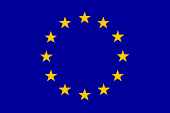
Session: ESSI3.3 Outline:
Open Access to Research Data is ushering a new era in Open Science, enabling scientists to attain greater impact, avoid duplication of efforts, foster future research through data preservation. According to its principles, all scientific data, including data underlying publications, curated data and raw data, must be findable, accessible, interoperable and reusable, online and free of charge.
Since the preparatory work for the International Geophysical Year of 1957–1958, through the free release of Landsat data in 2008, Earth & Space Sciences have paved the way to Open Access in research practice, which nowadays extends to all academic disciplines.
This session offers a multi-disciplinary venue to share success stories of Open Research Data and solutions for its challenges, as well as to identify good practices and areas where further support is required.
Contributions may regard, but are not limited to, infrastructural and technological aspects, e.g. hardware/software assets and tools for accessing research data, online repositories, Data Management Plans, but also lessons learnt, policies for managing, training and supporting continuous operation and evolution, as well as institutional, organisational, ethical and legal issues, e.g. licensing, related to providing Open Access to Research Data from a variety of sources, in a variety of formats.
Reports and experiences from participants in the Horizon 2020 Open Research Data Pilot are of special interest.
FOSTER+ Contribution (oral):
Passive vs Active Knowledge Transfer: boosting grant proposal impact
Ivo Grigorov (1), Georgia Bayliss-Brown (2), David Murphy (2), Thomas Thøgersen (1), and Patrizio Mariani (1)
(1) Danish Technical University, DTU Aqua, Research Secretariat, Charlottenlund, Denmark (ivgr@aqua.dtu.dk),
(2) AquaTT Ltd, Olympic House, Pleasants Street, Dublin, Ireland
Research funders are increasingly concerned with measurable socio-economic impact of investment in research, and on increasingly shorter timescales. Innovation, and “open innovation” are the policy priorities of the moment and optimising the flow of ideas along the lab-2-market spectrum is essential for re-use of results, fueling open
innovation, and boosting socio-economic impact or public funded research. The presentation showcases two complimentary strategies that Project Managers can employ pre- and/or post-award in order to optimise the exploitation and impact of research project: passive and active knowledge transfer.
Passive Knowledge Transfer relies on maximum disclosure of research output (other than commercially ex-ploitable research via patents and other IPR) in the interest of optimal reproducibility, independent validation and re-use by both academic and non-academic users, without necessarily targeting specific users. Tools of the
trade include standard public & academic dissemination means (research articles, online media publications, newsletters, generic policy briefs). Additional transparency of the research workflow can be achieved by integrating “open science” (open notebooks, open data, open research software and open access to research publications) as well as Virtual Research Environments (VREs) in the methodology of the proposed work.
Ensuring that the proposal partners are suitably trained in best practices of open science, makes proposal grant more competitive at evaluation and the resulting maximum access to research outputs does contribute to better return on investment for funders (Beagrie 2016) and economic growth objectives of public s e.g. Blue Growth (Houghton & Swan 2011, Marine Knowledge 2020 Roadmap).
Active Knowledge Transfer, or the pro-active translation of research into policy or commercial context, is the more classical and better known approach (also referred to as extension services, or researchers providing advice e.g. to fisheries and aquaculture governance bodies and private sector). Horizon2020 COLUMBUS
Consortium proposes and tests a methodology for categorizing the diverse output of research into verifiable “knowledge outputs” , and documenting the execution of an transfer plan to very specific and identified potential users, in order to transfer knowledge along the lab-2-market spectrum.
The presentation will demonstrate how Open Science and detailed knowledge transfer plans complement each other, enhance grant proposal evaluation pre- and post-award, and can address Blue Growth policy objectives. Concepts presented are developed by FP7/H2020 FOSTER+ (www.fosteropenscience.eu), H2020 COLUMBUS (www.columbusproject.eu)
References:
- Beagrie, Neil, and Charles Beagrie. “The Value and Impact of the European Bioinformatics Institute,” January 2016
- Houghton, John, Alma Swan, and Sheridan Brown. “Access to Research and Technical Information in Denmark” Monograph, April 2011.
- Marine Knowledge 2020: Roadmap
 Unless otherwise stated, all materials created by the FOSTER consortium are licensed under a CREATIVE COMMONS
ATTRIBUTION 4.0 INTERNATIONAL LICENSE.
Unless otherwise stated, all materials created by the FOSTER consortium are licensed under a CREATIVE COMMONS
ATTRIBUTION 4.0 INTERNATIONAL LICENSE.
 This project has received funding from the European Union’s Seventh Framework Programme for research,
technological development and demonstration under grant agreement no 612425.
This project has received funding from the European Union’s Seventh Framework Programme for research,
technological development and demonstration under grant agreement no 612425.